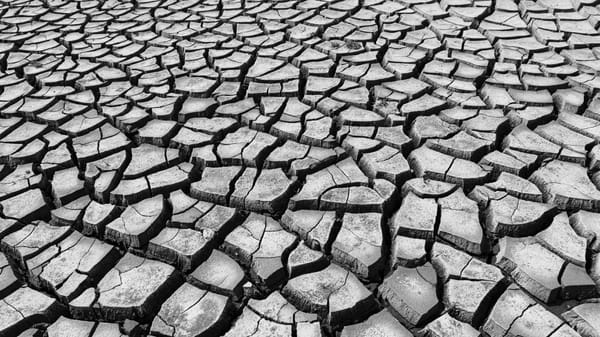
2024 Was a Warning
The past year of climate shocks and surging coffee prices has felt portentous. Without significant investment and industry cooperation, coffee’s future seems increasingly uncertain.

The past year of climate shocks and surging coffee prices has felt portentous. Without significant investment and industry cooperation, coffee’s future seems increasingly uncertain.
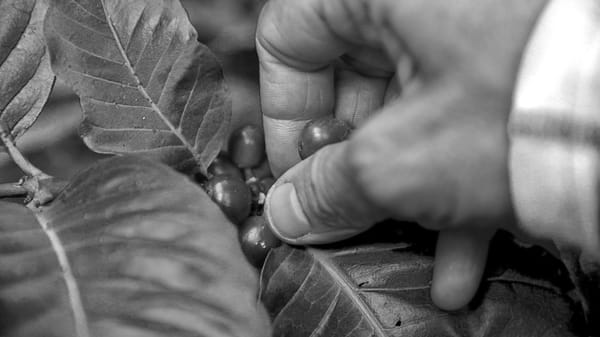
Coffee brands love to tout their ethics and human rights policies, yet the supply chain is still built on poverty. At some point, we have to judge the industry not by what it says but by its actions.

The coffee industry loves “community”, but it doesn’t always love the solidarity that the word signifies. Nowhere is this more obvious than in its reaction—or lack thereof—to the genocide in Gaza.

Companies in the Global North capture most of the profits generated along the coffee supply chain. But farmer-owned coffee roasters offer a more equitable model—and a path forward for the industry.

Baristas and other hourly coffee workers are undervalued and underpaid—but they are far from unskilled, despite what the pernicious stereotypes suggest.

Coffee companies love to fund projects that look good in press releases and impact reports. However, corporate philanthropy is mostly a shield to deflect criticism, protect power, and avoid regulation.

Starbucks wants to be known as a community gathering space, even after morphing into the ultimate convenience-focused coffee chain. But was it ever truly a third place in the first place?

That latte you just bought is the reason you won’t be able to retire, according to the financial gurus. But why has coffee become such a potent symbol of Millennial misspending in the first place?
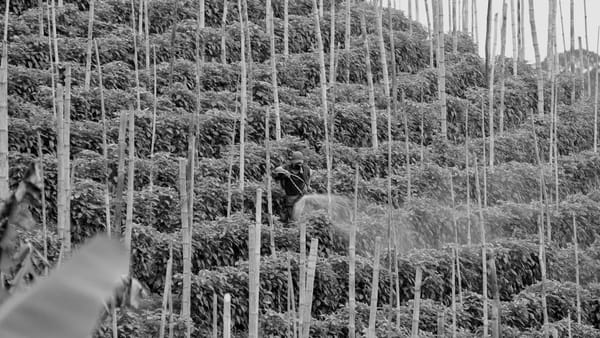
Seemingly every week, a new study reaffirms that coffee is beneficial to drinkers. Everyone’s favourite morning beverage has been shown to reduce the risk of various cancers; it can lower your chances of developing neurodegenerative diseases like Alzheimer’s and Parkinson’s; reduce the risk of type 2 diabetes;

I don’t think it’s hyperbolic to call the unionisation drive at Starbucks monumental. The movement—which began at a single store in Buffalo, New York, in December 2021—inspired not only other Starbucks employees but coffee workers around the United States to organise their workplaces and fight for

Welcome to the fourth article in a series investigating private equity and venture capital in the coffee industry. If you missed them, you can read Part One here, Part Two here, and Part Three here. This series has involved extensive research and dozens of interviews—if you value this kind
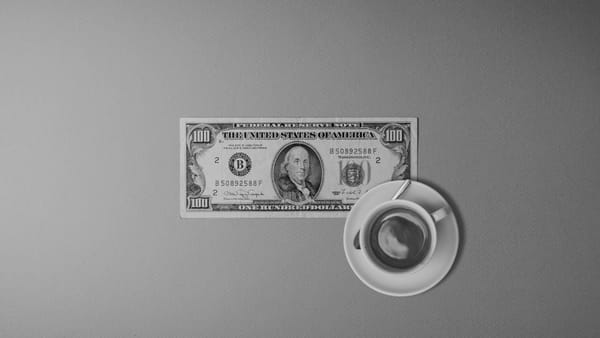
Coffee is big business. The global industry is worth hundreds of billions of dollars, much of that spent by American consumers whose thirst for coffee shows no sign of slowing down. Around the world, hundreds of millions of people rely on coffee for their livelihoods, from farmers and factory workers

Coffee Features
The world is drowning in disposable coffee cups. They’re in seemingly every cafe, convenience store, hotel lobby, highway rest stop, and auto repair waiting room. They’re in many of our hands every morning, used for maybe 10 minutes before being discarded. Despite their ubiquity, we’ve been trained

Coffee Features
For much of modern history, traditional news media played the role of critic and watchdog, the ‘fourth estate’ that served as a key check on power. Journalists at newspapers, and then radio and TV stations, investigated and exposed instances of corporate greed and political malfeasance with the public good in

Coffee Features
Welcome to the third article in an ongoing series investigating private equity and venture capital in the coffee industry. If you missed them, you can catch up on the first and second parts here. This series has involved so much research and dozens of interviews—if you value this kind

Coffee Features
This is a story about coffee, but only partly. It’s a story about data, and the way technology has become embedded in the industry. It’s also a story about the ways we interact with the coffee shops we frequent, and how those interactions have changed in an ever-more-digitised

Coffee Features
Coffee roasting is, at its core, a pretty straightforward process: Apply heat to green coffee beans until they turn brown and delicious. But there are numerous ways to go about that process, and every roasting company approaches it differently, and at a different scale. There are multinational companies cranking out
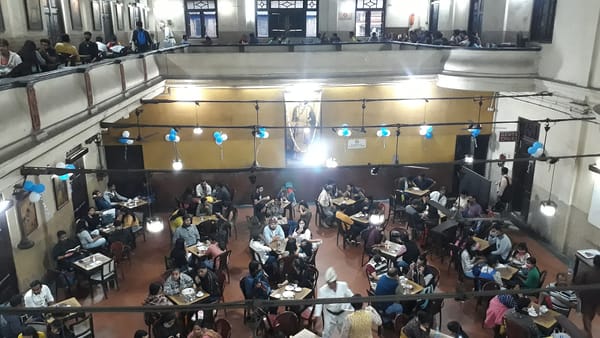
Coffee Features
India’s coffee scene is booming. Domestic coffee consumption has grown rapidly in recent years—upwards of 30% since 2018—and that momentum shows no signs of slowing. The sector’s meteoric rise mirrors the country’s overall economic picture; currently, India has the fastest-growing major economy in the world.

Coffee Features
For many, elite coffee competitions represent the pinnacle of the industry. But the huge costs to compete prevent those without financial support from participating—and harm the industry as a whole.

Coffee Features
Big money pours into specialty coffee with one goal: wealth extraction. But as soon as things go wrong, workers are the first to suffer.
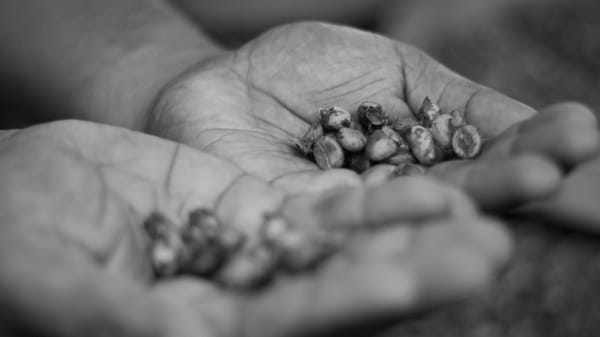
Coffee Features
It’s all Jack Nicholson’s fault. In 2007 he starred with Morgan Freeman in ‘The Bucket List’, a surprise box office hit about two men with terminal cancer who decide to embark on a globetrotting adventure before they kick the bucket. (Fun fact: This movie coined the now-common “bucket

Coffee Features
George Clooney crouches on a sunlight-drenched hillside in Puerto Rico, smiling as he helps a farmer plant coffee seedlings between banana shade trees. “When you hear Nespresso talk about sustainability, it’s about people as well as it is about the coffee bean and the plant”, Clooney says in a

Coffee Features
The war in Gaza has spilled over into the Red Sea. The coffee industry's concern is with shipping delays.
Coffee Features
The Coffee Barometer doesn’t pull any punches. So many coffee sustainability reports hedge their opinions and water down their criticisms, perhaps afraid to cross the corporations that fund much of the industry’s work to combat the climate crisis. The Barometer—a version of which has been published by